Peter Uvin, Vice President for Academic Affairs and Dean of the Faculty, has announced faculty reappointments and promotions.
“I am so proud of all the great faculty who are showcased here—they are amazingly accomplished teachers and researchers,” Dean Uvin said. “Congratulations to all the people reappointed, tenured, and/or promoted. And thanks to our entire community for their support.”
Reappointments
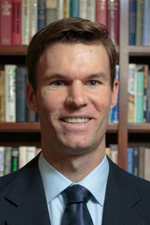
Andrew Finley
Andrew Finley was reappointed as an Assistant Professor of Economics-Accounting. Professor Finley joined the Robert Day School in 2015. His research focuses on how regulations, tax policies, and external monitors affect firm decision-making. His publications contribute to ongoing debates regarding the effectiveness of R&D tax credits as well as how oversight of public accounting firms affects clients’ choice of service provider and services provided. His current research illustrates how firms acquire information from tax examinations that impacts their subsequent tax avoidance, as well as how external auditors appear to influence the executive selection process of their clients despite the express prohibition on their involvement in personnel decisions.
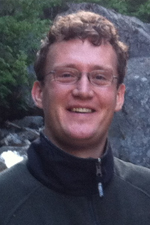
William Lincoln
William Lincoln was reappointed as an Assistant Professor of Economics. Professor Lincoln joined the faculty in the Fall of 2015. His scholarship focuses on immigration and international trade, with an emphasis on the role of firms in these processes. His work on how high skilled immigration affects innovation in a receiving economy was one of the first of its kind and has helped establish a growing literature on the topic. Professor Lincoln’s current research looks at how intellectual property rights policies in foreign countries affect U.S. exports, a topic at the center of recent trade negotiations. He has published in American Economic Journal: Economic Policy, the Journal of International Economics, the European Economic Review, and won the H. Gregg Lewis Prize from the Journal of Labor Economics for the best article in the journal in the preceding two years.
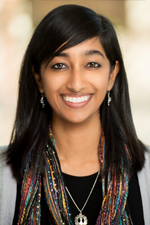
Sharda Umanath
Sharda Umanath was reappointed as an Assistant Professor of Psychology. Prof. Umanath joined the faculty in Fall 2015, and her work focuses on the nature of knowledge and its influence on remembering, with particular interests in how knowledge impacts memory in healthy aging, autobiographical memory, collective memory, and education. She recently published a journal article in Memory Studies on how older and younger adults consider important events in their personal lives, titled “Some personal life events are more prominent than others: Younger and older adults agree on which life events matter most” and another in the Journal of Experimental Psychology: Applied titled “Evaluating suggestibility to additive and contradictory misinformation following explicit error detection in younger and older adults.” The current work in her lab with undergraduate research assistants involves questions regarding how people of different nations consider their country’s national identity through past events, how we can activate our prior knowledge to protect suggestibility against misinformation, and how age can affect the accessibility of prior knowledge.
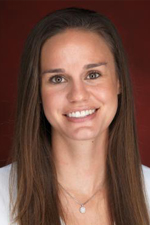
Angela Vossmeyer
Angela Vossmeyer was reappointed as an Assistant Professor Economics. Professor Vossmeyer joined the Robert Day School in 2015. Her research is in econometrics and banking. In econometrics, she focuses on Markov chain Monte Carlo sampling techniques in sample selection models, triangular and simultaneous systems, and multivariate limited dependent variable settings. She applies these methodologies to study financial intermediation and central-bank policy. Specifically, she is interested in evaluating the economic impact of lender of last resort policies, the design of specialized lending facilities and the stigma associated with them, and the evolution of systemic risk during financial crises.
Tenure and Promotion to Associate Professor
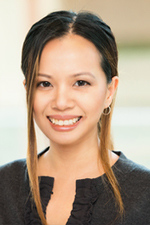
Stacey N. Doan
Stacey N. Doan was awarded tenure and promoted to Associate Professor of Psychology. Professor Doan joined the faculty in 2015, where she directs the Applied Mind and Health Lab; in Summer 2017, she became the director of the Berger Institute for Work, Family, and Children. Professor Doan’s research takes a multi-level of analysis approach to investigating biopsychosocial factors that influence developmental trajectories of health, well-being and adjustment in diverse groups. Her current research focuses on risk and resilience factors that promote thriving in the context of challenges, the intergenerational transmission of stress, and identifying mechanisms by which the social environment becomes biologically embedded. She has published over 30 papers in the best health and developmental journals. Her research is funded by the National Institutes of Health. Last year, Professor Doan received the Western Psychological Association Early Career Research Award and the Society for Research in Child Development—Asian Caucus Early Career Award. The American Psychological Association will be publishing her first book, The Social Foundations of Emotions, slated for release in 2018.
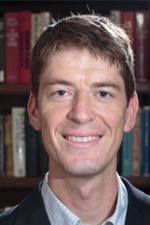
Daniel Livesay
Daniel Livesay was awarded tenure and promoted to Associate Professor of History. Professor Livesay joined the faculty at Claremont McKenna in 2015 as an Assistant Professor of Early American and Atlantic World History. His research focuses on topics of race and slavery in North American and the Caribbean. His first book, Children of Uncertain Fortune: Mixed-Race Jamaicans in Britain and the Atlantic Family, 1733-1833, was published in January of 2018 by the University of North Carolina Press. It examines the migration of mixed-race Jamaicans - the children of white men and free and enslaved women of color - from the Caribbean to Britain in search of an education and professional opportunities. The book traces how white families on both sides of the Atlantic treated their relatives of color, and how conceptions of family were integral to conceptions of race. Prof. Livesay is currently working on a new project documenting the lives of enslaved Virginians and Jamaicans in old age. He will spend part of the Fall of 2018 completing research fellowships at Mount Vernon and the Virginia Historical Society.
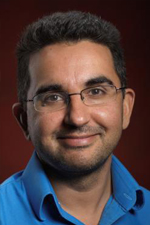
Jamel Velji
Jamel Velji was awarded tenure and promoted to Associate Professor of Religious Studies. Professor Velji joined the faculty in 2015 after having taught for five years at Haverford College. His book, An Apocalyptic History of the Early Fatimid Empire, is the inaugural volume of Edinburgh University Press’s new series on Islamic Apocalypticism and Eschatology. The book examines how a major Shia dynasty known as the Fatimids (909-1171) came to rule a vast swath of North Africa through what we might now call an apocalyptic revolution. It also examines how the Fatimids adjusted their theology when the end of the world, and the Fatimids’ promised utopia, failed to arrive. Velji is at work on his second book, which is about coffee’s Islamic past. He is currently co-chair of the American Academy of Religion’s Comparative Approaches to Religion and Violence Group, and a Steering Committee Member of The Study of Religion as an Analytical Discipline Workshop, a workshop held annually at the meetings of the American Academy of Religion and Society of Biblical Literature.
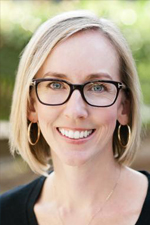
Mary Evans
Mary Evans was promoted to Jerrine and Thomas Mitchell ’66 Professor of Environmental Economics in the Robert Day School of Economics and Finance. Professor Evans joined Claremont McKenna College in 2009. She serves on the Science Advisory Board for the Environmental Protection Agency (EPA) and as a member of the board for the Association of Environmental and Resource Economists (AERE). She is the co-editor for the Journal of the Association of Environmental and Resource Economists. Her past research explores how individual characteristics, like age and health status, impact the willingness to pay for mortality risk reductions. Her recent research examines the enforcement and compliance of environmental regulations. Her 2016 paper that studies how facilities responded to the EPA’s Clean Air Act Watch List won the Ralph C. d’Arge and Allen V. Kneese Award for Outstanding Publication in the Journal of the Association of Environmental and Resource Economists. She has received funding for her research from the EPA and the John Randolph and Dora Haynes foundation.
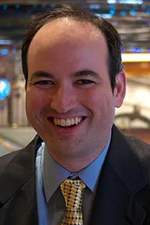
Mark Huber
Mark Huber was promoted to Fletcher Jones Professor of Mathematics and Statistics. Professor Huber joined the faculty in 2009. Having been a fan of chance occurrences all his life, Huber's research is in the area of Monte Carlo methods, which is the intentional use of randomness in computer algorithms in order to speed up the approximation of high dimensional integrals. These types of algorithms are used in statistics and the sciences to draw faster inferences from large data sets. Currently he is working on several new robust approximation techniques, which allow the user to get an estimate that is provably close to the true answer with high probability. His recent book Perfect Simulation, gave an overview of his and others' work in this area together with the theory behind these methods.
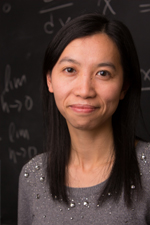
Chiu-Yen Kao
Chiu-Yen Kao was promoted to Professor of Mathematics. Professor Kao joined Claremont McKenna College in 2011 from The Ohio State University. Her research focuses on shape optimization for Eigenvalue problems, numerical methods for partial differential equations, level set methods, and their applications in image processing, physics, and biology. She wrote a book published by Springer on mathematical modeling for biological processes with Prof. Avner Friedman. Lately she has worked on shape optimizations for Steklov eigenvalue problems, which have applications in liquid sloshing, biharmonic eigenvalue problems for plate vibrations, spectral optimization for Schrödinger equation, numerical methods for PDEs on general surfaces, and image segmentation for ciliary muscles. She received Institute of Electrical and Electronics Engineers (IEEE) Signal Processing Society Best Paper Award in 2013, National Science Foundation grants in 2012 and 2014, and a collaboration grant for mathematicians from Simons Foundation in 2017.
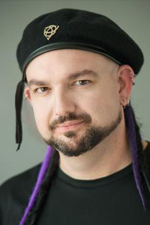
Sam Nelson
Sam Nelson was promoted to Professor of Mathematics. Professor Nelson joined the faculty in 2008. Professor Nelson's research involves the discovery of new algebraic structures which are used create tools for distinguishing various types of knotted objects -- knotted surfaces in four dimensional space, knotted curves and tangled networks of strings in various locally three-dimensional spaces, pseudoknotted structures with only partial knotting information, etc.—which have applications in biology, chemistry, quantum computing and more. His 60+ publications include journal articles with collaborators from all over the world, including 36 papers with undergraduate student coauthors, as well as the first textbook on Quandle Theory. He is currently the chair of the SoCal-Nevada section of the Mathematical Association of America.
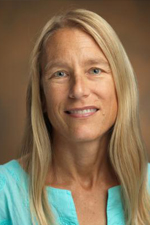
Lee Skinner
Lee Skinner was promoted to Professor of Spanish. She joined CMC in 2008. Her research focuses on nineteenth-century Spanish American narrative and essay, with a particular interest in nation-building and identity, and she frequently analyzes ways in which writers addressed questions of citizenship and national participation and how they contested prevailing social and cultural norms of behavior, be they based on gender, class, or race. Rather than focusing on a certain country, genre, or author, she looks across Spanish America to examine commonalities and key differences. Her most recent book is Gender and the Rhetoric of Modernity in Spanish America, 1850-1910 (University Press of Florida, 2016) and she is now writing a book about the cultural history of food and eating in Spanish America from 1825 to the present. Professor Skinner did all of this while serving for the last five years as Associate Dean of the Faculty.

